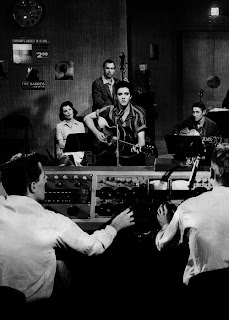What is their star image?
The xx is an Organic English band. The group consists of three members: Romy Madley Croft, Oliver Sim and Jamie Smith. Their music genre is indie pop mixed with dream pop. Their style is very original and when paired with impressive talent, this makes them one of the best bands of our generation. Unlike synthetic bands, The xx not only target teenage girls but a much larger segment of sophisticated audience not depending on age.
"Crystalized" was the band's first single therefore this music video played a very significant part in showcasing the band's star image and connecting with their audience.
The music video starts with a wide shot of the band leaning against the wall that projects blue skies. Throughout the whole music video, miss-en-scene stays the same with projections of the wall and lighting changing.
Editing
The pace of the video is sharp with the angle changing from one band member to another. This editing technique is done to match the pointy, grating music of The xx. The lighting in the video stays dim throughout the video. This makes the band seem mysterious and more indie.
Sound
The music used in the video consists of Sim's and Croft's voices, guitars and electric keyboard making it sound gripping.
Cinematography
Throughout the video, a viewer can observe wide shots representing the whole band leaning against the "changing" wall. There are also close ups of their instruments like Sim's guitar and Smith's keyboards. This to prove to the audience that they are organic performers. The director also pays attention to the background of the wall.










